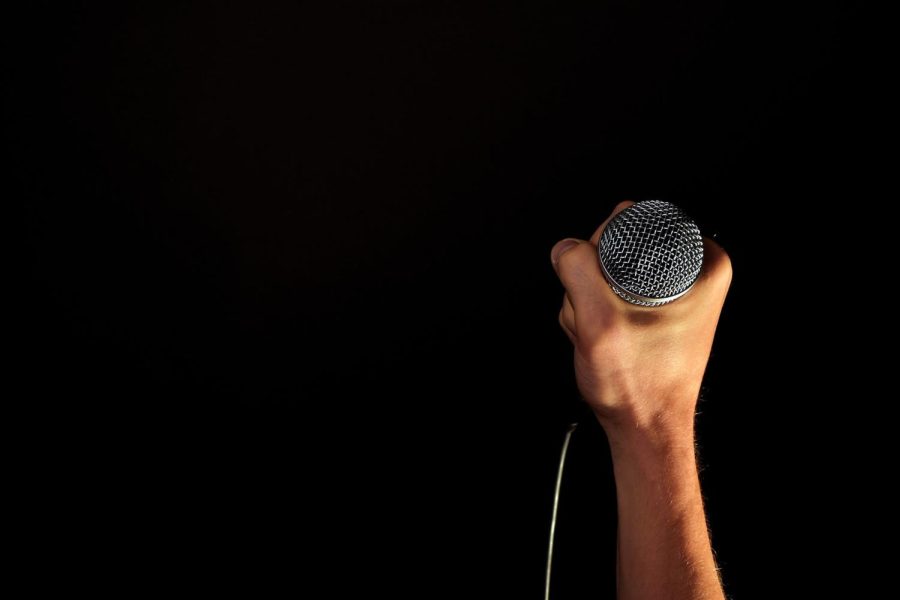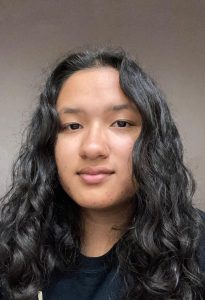Students Across 40 Majors Perform Speeches at HIP Talks 2022
May 2, 2022
Every spring at the University of Utah, the Hinckley Institute of Politics, in conjunction with ASUU, hosts HIP Talks, a competition open to everybody on campus for the best two-minute speech on a topic of the student’s choice. The grand prize is $5,000, followed by prizes of $1,000 for five runner-ups.
Alex MacFarlane, administrative program coordinator for the Hinckley Institute, said the purpose of the competition is to foster public speaking skills among students at the U from all backgrounds, emphasizing its importance regardless of the fields people are going into. Students from 40 different majors were represented in this year’s rounds.
“We just want to really reiterate the importance of public speaking and also we want to make sure that students know that this is for everyone, right?” MacFarlane said. “Just because you’re not a communications major … doesn’t mean that you don’t have something important to say, doesn’t mean that you don’t have a story to share. No matter what you’re studying, no matter who you are, this is something for you.”
The competition originally started seven years ago and was created in honor of former Utah Congressman Wayne Owens. According to Jason Perry, the director of the Hinckley Institute, the Owens fund has supported HIP talks ever since, providing over $60,000 in scholarships. Members of the Owens family also continue to be directly involved, with a member of the family representing in this year’s HIP talks as a judge in a preliminary and final round.
The competition is structured by three preliminary rounds in which 10 students are chosen from each round to compete in the finale, leaving 30 finalists to perform their two-minute speeches. There are different judging panels for each of these rounds, ranging from three to five judges and ending with a seven-judge panel for the finale.
The 2022 finale’s judges included Julianne Liu, the HIP Talks 2021 grand prize winner, Moira Gray, the 2021 audience favorite, Jess Wojciechowski, current ASUU student body president, Nick Thiriot, the communications director for the Kem C. Gardner Policy Institute, Perry, the director of the Hinckley Institute and Jennifer Napier-Pearce, senior advisor of communications to Utah Gov. Spencer Cox and former editor of the Salt Lake Tribune.
Perry shared some of the qualities that judges are looking for in winning speeches.
“What we’re looking for as judges … it’s an original two-minute speech,” Perry said. “Whatever the topic is … we’ll be judging them based on the delivery, including memorization, the speech organization and the speech length
The finale was held on April 12, taking place in person for the first time in two years. Students spoke on a vast array of topics, ranging from thrifting clothes to gun violence to critical race theory.
Piper Christian, the grand prize winner, delivered a speech titled “A Global Addiction,” in which she compared the relationship between current youth and the climate crisis to loving someone struggling with addiction.
“When I think about the challenges we face with the global climate crisis, strangely enough, my grandfather comes to mind,” Christian said. “My grandpa Carl was a loving father and an extraordinary man. He was also an alcoholic. Many of us have known the pain of loving someone who is self destructive. It’s infuriating. More so, it’s heartbreaking … my generation is the child of an addict … and while you have promised us time and time again that you will break your addiction, with each relapse, the promises sound more hollow.”
Corinne Clarkson, a runner-up, performed a speech titled “Bigger Pockets.” In it, she speaks about the need to stop thinking of men as the default in society, something which has led to it being built exclusively with men in mind.
“Men are not monsters,” Clarkson said. “They’re just the default. In her book, ‘Invisible Women,’ Caroline Criado-Perez reveals that we live in a world built for and by men, everything from phone design to AI to government policy. Turns out my Supra is not even built for me: women are 47% more likely to be seriously injured in a car accident in part because car manufacturers rarely use female test dummies.”
Clarkson is a master’s student in Latin American studies, and says she was inspired to write the speech when she read “Invisible Women,” a book about the absence of women in data that is used to make important decisions.
“I really connected with [the book] … I’ve seen this disparity and it bothers me but I don’t want to be angry about it, I just want things to change,” Clarkson said. “That was my point of the speech, just to raise these biases we have in our heads.”
Clarkson said she wrote the speech by recording herself talking during her commute to campus from Logan, cutting down the two-hour long recording to her favorite parts, then adding in key takeaways from the book.
Clarkson said she was inspired to participate by her inner child.
“Honestly, 12-year-old me would have signed up for it, and I feel like I’m not like her anymore,” Clarkson said. “I thought I would do something different. Even though it’s extra, even though it’s going to stress the crap out of me, I just wanted to go out there and do it.”
Kate Lunnen, a third-year student at the U double majoring in English and gender studies, also won runner up for their speech titled “Straight Again.” The topic of their speech was their personal experience with queer identity and religion, particularly how this was shaped by their relationship with their father.
“So a gay kid walks into a Utah bathroom, and it’s just the sort of bathroom that I don’t want to be in but there isn’t an all-gender one in the building, and I don’t have the courage to try the men’s today, so now I’m face to face with four carbon copies of the daughter my parents wish they had all staring at me as though Pride Month got old three years ago,” Lunnen said. “And it’s almost funny, except it’s really not because all of a sudden I’m in a bathroom stall and I can’t breathe and my hands are shaking, and I don’t even need to pee anymore because the only thing I feel is the weight of my father’s hands placed on my head in the 10th grade when he asked God to make me straight again.”
Lunnen said the speech came flowing out in almost its final form all at once when they sat down to write something.
“I couldn’t tell you exactly why I chose this topic,” Lunnen said. “The night that I found out about HIP talks I was just sitting on my bed, it was like midnight, and I just wrote the speech exactly how I presented it today. I think I changed one sentence from it, but it was very much a kind of regurgitation of how I’ve been feeling.”
After writing the speech, Lunnen said they made use of the podcast booth in the Marriott library to practice delivering it, record themselves and make adjustments by listening back to it over and over.
“I just practiced what I had written maybe 10 or 12 times, and I made a recording of it and emailed it to myself,’” Lunnen said. “Over the next couple of weeks, I was actually listening to it like in my headphones on my way to class … to hear it back to see, ‘Is this how I want to say it,’ or ‘I should maybe pause at that point,’ or emphasize that or ‘I want to change the verb I use.'”
Lunnen said they were initially concerned about the personal nature of their speech, but felt it worked in their favor in the end.
“It was absolutely nerve-wracking … the nature of my speech was maybe a little bit more personal than what other people talked about … finding out that I was a runner-up just felt really validating and thrilling and exciting, and it made me happy that I decided to be vulnerable and share what I really thought,” Lunnen said.
Other runner-up winners included Siena Popiel for the speech “Not As Advertised” and Helen Saylee for “Against Gun Violence,” and Jacob Martin’s “Not In My Closet” won audience favorite.
The entire finale is available to watch on the Hinckley Institute of Politics YouTube channel.








